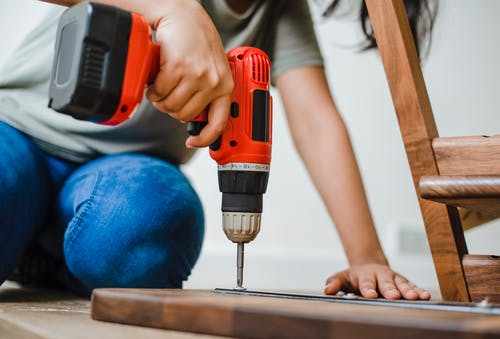A hurricane period is when strong winds, heavy rainfalls, and flooding can damage residences and structures. If you want to plan for this period, securing your home from water and mold damage is essential. The following are some pointers to assist you in preparing for the typhoon period:
How to Prepare During Typhoon Period
Protect Outside Furnishings
Protect outside home furnishings that might become airborne during a storm. These things can cause damage to your house or become a risk to others.
Maintain HVAC System
Ensure your heating and cooling system is adequately protected to prevent mold and mold growth. Change your air filter system regularly, and have your system analyzed and cleaned by a specialist.
Cut Hedges and Trees
Cut trees and hedges near your home to prevent them from falling on your home during a hurricane.
Set Up Tornado Shutters or Plywood
Consider mounting hurricane shutters or plywood over doors and windows to safeguard against wind and flying bits. This can prevent damaged home windows and more damage to your home.
Have an Evacuation Strategy
Prepare to evacuate your residential property in case of a severe storm or flooding. Know your evacuation routes and have an important meeting place for your family. And call a professional emergency restoration.
Store Personal Valuables Properly
Store your valuables in a secure, elevated area to quit water damage. Move products to elevated floorings or storage area systems during hurricane season.
Hire a Professional Restoration Company
In case of water, mold, mildew, or mold damage, utilize a professional remediation company to check and correctly remediate the damage. Removal specialists have the competence and tools to get rid of water and mold properly, avoiding further damage to your home. You can check their mold removal services to learn more.
Consider Flood Obstacles
Consider installing flooding obstacles around your residential property if you stay in a flood-prone location. These barriers can stop water from entering your residence and causing damage.
Examine Your Roof
Assess your roofing system covering for any damage or water leaks, and fix them immediately. Hefty rains and solid winds can trigger more damage to an endangered roofing covering and produce water damage inside your residence.
Seal Your Cellar
If you have a basement, ensure it’s well protected to avoid water from dripping. Consider establishing a sump pump or dehumidifier to maintain the location entirely dry.
Keep Crucial Documents Secure
Maintain crucial documents in a water-resistant container, such as insurance policy protection and identification. This will ensure that they remain quickly obtainable and safe in an emergency.
Mount a Sump Pump
Consider mounting a pump or water security system in your basement or crawlspace to prevent water damage. These systems can discover and eliminate excess water before it creates damage.
Clear Seamless Gutters and Downspouts
Clear your gutter and downspouts of debris to guarantee appropriate water drainage. Clogged rain gutters can trigger water overruning and seep into your home’s structure, creating water damage and mold development.
Get a Generator
Think about investing in a generator to ensure you have power in case of a power outage. This can protect against damage from an absence of climate control or water elimination systems.
Review Your Insurance Coverage Plan
Before the cyclone period begins, check your insurance policy to ensure enough protection from water, mold, mildew, and mold damage. Look for exemptions or restrictions, and consider including a flooding insurance plan if it’s not currently included.
Keep Informed
Maintained information about weather condition updates and emptying orders throughout the cyclone period. Have a reliable source of info, such as an environment radio or smart device application, to stay up-to-date on the most up-to-date progressions and contact professional hurricane damage in Davie, FL after the hurricane.
How to Secure Your Building From Mold, Mildew, and Water Damages
To safeguard your building from water and mold, and mildew damage, you can take the adhering steps:
- Consider using mold-resistant items in areas susceptible to wetness, such as mold-resistant drywall and paint.
- Take care of any water damage immediately, whether from leakage or a hurricane, to stop mold development.
- Guarantee correct air flow in damp locations, like kitchen areas, basements, and restrooms.
- Display indoor humidity levels and use a dehumidifier to keep optimum levels (between 30-50%).
- Ensure your house’s outdoors, consisting of doors and windows, is adequately secured to stop water from permeating within.
- Care for leaks or standing water problems in your home, such as roofing or plumbing.
- Evaluate and clean ducts routinely to stop mold and mildew growth and improve interior air quality.
Conclusion
By planning for tornado season, you can protect your property from water, mold, and mold damage. Do not wait till it’s far too late; begin preparing today. These procedures can better protect your structure from water, mold, and mold damage throughout cyclones. Remember, preparation is vital to reducing harm and maintaining your home harmless.

